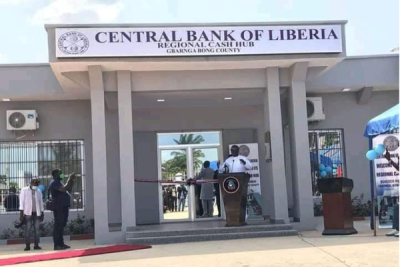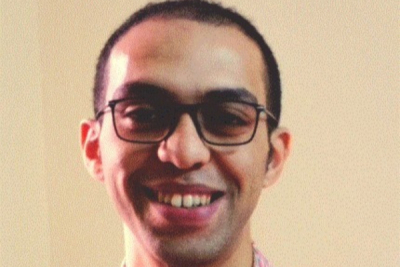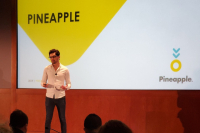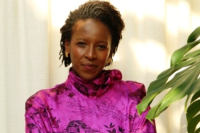Gabon’s digital transformation strategy provides for the creation of several digital infrastructures to develop the ICT industry. Several players have recently sent proposals to help the government successfully implement that strategy.
The Gabonese Minister of Digital Economy, Jean Pierre Doukaga Kassa, received Thursday, an American delegation led by Dilawar Syed, Special Representative to the United States Office of Economic and Business Affairs.
On social media, the Ministry of Digital Economy said that the delegation came "to [express] U.S. [companies’] will to support Gabon in its major digital investment projects.”
The two parties reviewed the areas of cooperation between Gabon and the U.S., but also U.S. companies’ support in the development of the Gabonese digital ecosystem through the construction of infrastructure (backbone and data center), innovation (start-up and training), as well as the improvement of the legislative and regulatory framework specifically in the fight against cybercrime and cybersecurity.
The visit comes in a context where Gabon is working to further develop its digital sector so that it can make a greater contribution to the transformation of its economy. Since 2009, through the strategic plan Emerging Gabon 2025, the government is working to make Gabon a model in the African digital sector by 2025.
Over the past few months, the country is visited by foreign investors who are offering to support the country in achieving its goal. Earlier this month, the Minister of Digital Economy also received a delegation of Indian businessmen who offered their expertise for the construction of data centers in the country.
On Twitter, Dilawar Syed said that the visit of U.S. investors comes in the wake of the U.S.-Africa summit and responds to the willingness of U.S. President Joe Biden to assist African countries in their digital transformation.
Samira Njoya
Motorcycle taxis are one of the most widely used transport modes in Africa. But, the sector is sometimes disorganized and hailing bike drivers can be a hurdle. In Rwanda, a start-up wants to make bike hailing easier.
Yegomoto is an urban mobility solution developed by the Rwandan start-up Yego Innovision Ltd, a subsidiary of the Singaporean firm Kommlabs. It allows Kigalians to easily move around town on their preferred transport mode, motorcycle cabs.
Through its mobile apps -available for Android and iOS devices, users can request a bike ride or even hail car drivers. Its motorcycle taxi drivers are identifiable by their bright-red helmets. So, if a user doesn’t want to or is unable to book a ride through the mobile app, he/she can just hail the Yegomoto drivers on the roadside and easily get to their destination. In the two cases, once at the destination, the cost of the ride is displayed by meters, allowing the user to pay via mobile money, the Tap and Pay card, or Yegomoto’s Ride-tap-Pay card.
In addition to public transport, the start-up is active in last-mile delivery. Since its launch, the Android version of the application has been downloaded more than 10,000 times. Yegomoto claims more than 16,226,575 trips and more than 84,820,632 kilometers traveled. It plans to launch in Harare and Bulawayo, Zimbabwe before eying other African countries.
Adoni Conrad Quenum
Africa is attracting a rising volume of venture capital but, most of the funds go to startups in a handful of countries.
Factor[e] Ventures, a team of company builders that invests in early-stage startups in sub-Saharan Africa and Southeast Asia, has launched Delta40, a startup studio specifically focused on Africa.
Per its website, Delta40’s “mission is to increase incomes and tackle climate change in Africa by building high-impact, technology-enabled energy, agriculture, and mobility ventures led by diverse, experienced founders.”
“A decade of investing in energy, agriculture, mobility, and water innovations in emerging markets has affirmed that there is a great opportunity at the formation stage to support local and diverse founders as they connect their technologies and markets,” said Factor[e] Ventures co-founder, Morgan DeFoort.
The startup studio will invest between $100,000 and $600,000 to create and support African startups specializing in energy, agriculture, and mobility –the sectors that captured 8% of the overall VC funding attracted by Africa in 2022, according to Partech Africa.
With the launch of Delta40, Factor[e] Ventures aims to boost the volume of VC financing attracted by African startups and encourage investors to fund even more startups in the targeted sectors. In addition to providing capital, Delta40 will also act as a co-founder, offering product testing, technology brokering, early-stage commercialization, and accelerating company creation.
Delta40 has secured funding and support from several private and public institutions, including the Autodesk Foundation, the Global Energy Alliance for People and Planet, and the climate technology law firm Wilson Sonisi. The startup studio will be based in Kenya, with operations in Nigeria.
Samira Njoya
He is a lawyer specializing in information and communication technology law. To boost the livestock sector and facilitate livestock trade in South Africa, he founded SwiftVEE.
Russel Luck (photo) is a lawyer and the founder/CEO of SwiftVEE, an agritech startup.
Founded in 2017, SwiftVEE provides livestock advertising and insurance services online. Its platform helps address water scarcity, food insecurity, and market inefficiencies in the livestock sector. Currently, it claims over 100,000 livestock sold and more than 20,000 satisfied customers.
In January 2023, the startup launched a new app to help farmers buy the inputs they need at the best rates. The app, called PrysWys, allows farmers to list the inputs they need and receive the best quotes.
According to Russel Luck, PrysWys was launched to curb the rising costs of inputs. "[...] We have noticed that farmers pay high premiums for their inputs at brick-and-mortar retailers. We believe there is a lot of unnecessary bloat in the traditional supply of inputs…," he told Disrupt Africa.
To date, with over 1,000 active users, PrysWys has sold tens of thousands of dollars worth of input online.
Since 2014, its originator, Russell Luck, has been a non-executive consultant with SwiftTechLaw, a law firm specializing in the tech sector. He began his professional career in 2005 as a graduate intern at BNP Paribas Bank. In 2007, he became an attorney with the real estate law firm Smith Tabata Buchanan Boyes.
The lawyer has received several awards for his start-up, which is a Google Launchpad company and the winner of the 2018 MEST Africa Challenge South Africa.
Melchior Koba
Liberia's financial sector faces several challenges, including inadequate ICT infrastructure. The existing payment infrastructure deployed in 2016 has served the country well over the past six years but requires urgent upgrading.
The African Development Bank (AfDB) will finance the Liberia Payments Infrastructure and Systems Upgrade Project. For the said project, the Board of Directors of the African Development Fund, the AfDB's concessional lending window, approved a $3.9 million grant on Friday, March 17.
“The modernization of Liberia’s payments infrastructure and systems to improve payments efficiency will not only strengthen the formal financial sector but contribute to greater financial stability and improved private sector development,” explained Benedict Kanu, African Development Bank country manager for Liberia.
According to an AfDB release, the financing will target the automated check processing and automated clearing house systems, as well as the real-time gross settlement systems that form the backbone of payment processing in the country's financial sector.
It will also finance the upgrading of the Central Bank of Liberia's main data center and “impact the institution and government ministries involved in the payment.”
The main objective is to strengthen Liberia's payments ecosystem for increased efficiency and to foster growth and innovation, as well as financial inclusion, which currently stands at 44.2 percent according to the World Bank's Global Findex 2021 database.
Samira Njoya
He is a serial entrepreneur with over five companies created in Morocco and Dubai. His companies include Ezzal, a startup that aims to facilitate the transport of goods across Africa and the Middle East.
Mohamed Badr (photo) is an Egyptian serial entrepreneur and one of the co-founders of Ezzal, a mobile platform that aims to facilitate the transport of goods.
Founded in 2020, Ezzal allows vehicle owners to offer services to anyone who needs to transport items -appliances, furniture, machinery, or materials. It helps businesses and individuals find the right and reliable carrier for their needs and avoid being surprised by high costs and poor service quality.
Mohamed Badr launched the app in Morocco instead of Egypt where he was born and raised "due to the economic conditions in Egypt, such as inflation and the low local currency, in addition to the authorities imposing a lot of additional fees and petty cash that did not exist in the past, such as security permits."
The app is now accessible in every city in Morocco and neighboring countries like Spain, Gibraltar, Portugal, Mauritania, and Senegal. The company also plans to expand to other countries in North Africa and the Middle East but has yet to make plans to expand to Egypt.
Before launching Ezzal, in 2017, Mohamed Badr co-founded LarusDubai, a Dubai-based startup that provides freight forwarding, customs clearance, transportation, and courier services. In 2021, he launched Megamaa, a rain management tech that created a natural material of the same name to solve flooding problems. In submerged cities, the material can be thrown around before rains. It then collects rainwater that can be used in drought-affected areas or to irrigate farms.
In 2022, the serial entrepreneur founded Murabetsport, a crowd and event management company. He also founded Nazyef, an electric car charger manufacturer, and Neque contumelia, an artificial intelligence technology that aims to reduce injuries in soccer.
His professional career began in 2014 at Engineers Club of Alexandria where he was the inventory control supervisor. In 2015, he was hired by IEREK (International Experts for Research Enrichment and Knowledge Exchange), an international institution dedicated to knowledge exchange and research improvement, as an event coordinator. He worked there until the launch of LarusDubai.
Melchior Koba
Africans are increasingly turning to e-learning. Since the Covid-19 pandemic, interest in this sector has increased and local tech entrepreneurs are offering tailor-made solutions, adapted to the needs of the population.
Teesas is an edtech solution developed by a Nigerian start-up. It helps users -children notably- improve their understanding of various topics and subjects and learn indigenous languages. The start-up, based in Ikeja, was founded in 2020 by Osayi Izedonmwen. It raised, less than two months after its launch, $1.6 million to develop its technology and better position itself in the Nigerian market.
“Teesas provides a platform where educators and learners engage seamlessly and efficiently, to facilitate a fun and effective learning experience via the deployment of technology and the adoption of local culture and dialects,” the startup indicates on its web platform.
Users can access its content through its mobile applications developed for iOS and Android devices -the Android version has been downloaded more than 100,000 times from Playstore. To allow their children to access the contents, parents can register accounts and select the subjects their children are struggling with or local language courses. The content is inspired by the Nigerian national curriculum, which makes it easier for learners.
Osayi Izedonmwen explains that "live classes deal with concepts where learners have challenges. The learners sit with teachers in small remote classes of 10 or 15 for a personalized engagement, and to get more rigor into the teaching process.” Access to the content requires a subscription (starting from $6 monthly).
The solution also has dedicated Android and iOS apps for parents to track children’s progress in the selected subjects and languages. It provides access to information about opportunities for improvement and personalized learning data. "We foresee a future where kids don’t have to attend in-person classes because they can cover entire curriculums on an app, and be ready enough for their secondary school entrance exams," Osayi Izedonmwen indicates.
Adoni Conrad Quenum
With the improvement in internet access, the rise in smartphone adoption, the drop in the costs of sensors, the development of the cloud, etc… Africa has the opportunity to become a real player in the development of the internet of things. In that context, Nigeria is upping its investments in the sector.
E-Space, a global satellite communications company, announced, Monday, it has secured landing rights in Nigeria for its upcoming constellation of low-orbit satellites.
The approval issued by the Nigerian Communications Commission gives E-Space the right to deploy its satellite system, which will "provide communications services and connect Internet of Things (IoT) devices throughout Nigeria in many of the hardest-to-reach parts of the country, particularly those areas currently unserved by terrestrial providers."
Nigeria is among the many nations that are leveraging the Internet of Things to address a wide variety of national challenges while implementing solutions to grow their economy. In 2018, U.S. giant IBM and agritech company Hello Tractor, which has a presence in Nigeria and Kenya, partnered to develop an AI and blockchain platform for African farmers. The partnership has enabled the installation of connected objects equipped with sensors in farms to collect and transmit data on rainfall, plant predators, input use, etc.
The landing right opens a new era in the field and paves the way for future collaboration between E-Space and the country's government, businesses, and communities. The collaboration can lead to the development of the ecosystem and applications needed to develop the local economy and create new jobs in a range of fields, including engineering, and data analysis.
After its launch in 2017, the insuretech company struggled to gain ground in the South African market until 2021 when it suddenly grew by 200% in the first semester.
Pineapple is an insurtech solution developed by a South African eponymous startup. It allows users to purchase insurance policies online
On its web and mobile (Android and iOS apps) platforms, the solution offers a multitude of insurance policies users can buy after they set up their Pineapple accounts. Among others, Pineapple offers insurance for cars, bikes, smartphones, fire, theft, leaks and floods, power surge, or accidental damage.
Before subscribing, users can request and receive record time quotes and policy details, and benefits.
In some cases, the insuretech offers discounts on some policies. For instance, if a car insurance subscriber travels less than 300 kilometers per month, he/she will get a discount that can go up to 30%.
According to PlayStore data, the Android version of its mobile app has been downloaded more than 100,000 times. In 2019, the South African insuretech won the top prize in the annual VentureClash competition in the US. It was awarded $1.5 million, an amount that the executives invested in the development of the startup. Also, since its launch, it has raised some $9.1 million to support its growth. In July 2021, when it secured ZAR80 million in Series A round, it announced that in the first six months of the year, it grew by an unexpected 200%.
Adoni Conrad Quenum
She is an entrepreneur concerned with women’s well-being. With their interest in mind, she co-developed an inclusive, modern, and responsive health system.
Fatoumata Ly (photo) is a Guinean-born entrepreneur and the co-founder/CEO of Ninti, a healthtech company that develops solutions to offer women the best sexual and reproductive care.
Her startup, founded in 2021, aims to make healthcare accessible, inclusive, and personalized so that individuals can take care of their sexual and reproductive health and also support others.
According to the founders, Ninti was born out of their own painful experiences. "With hundreds of conversations with people navigating complex sexual and reproductive health journeys, I've seen firsthand the barriers and stigmas that can prevent women from accessing the care they need. That's why I co-founded Ninti - to break down those barriers and provide women with the resources and support they need to make informed decisions about their health," Fatoumata Ly says in her Linkedin “About” section.
Ninti has designed a digital platform that allows employers to offer data-driven content to their employees to let them navigate their healthcare journey from preconception to menopause. Through the platform, employees can also receive care from professionals and join the Ninti community and participate in events and circles.
Ninti’s CEO is, since November 2019, the vice president of SINGA France, an international civic organization that accelerates the inclusion of immigrants. She is also a member of the board of Learn Afghanistan and SISTA, an NGO that encourages investments in women-led and women-owned businesses. In 2018, she co-founded You're Welcome App, an app to generate additional revenue for hotels. She was the platform’s operations manager until 2020.
She entered the professional world in 2011, after her bachelor's in language science. She first worked as an event coordinator for Efma (now Qorus), a nonprofit financial services association. In 2014, she was promoted to the position of corporate events manager.
Between 2014 and 2019, she was the local leader of the Levo League in France, a thriving online and offline community of young professionals, role models, and innovative businesses. After a career break in 2020, she works at Bayes Impact, an organization with a mission to create citizen-run public services, as an independent senior project manager in 2021.
From 2021 to 2022, she was the project manager for the Covid-19 Ad Memoriam Institute, which fights Covid-19. With her team, she created a platform where citizens can share their Covid-19 experience.
Melchior Koba
More...
The youth needs digital skills and opportunities to make a productive contribution to the digital future envisioned by leaders. To that end, authorities in various countries are implementing actions to develop talents and open new horizons.
Last Monday, Malagasy First Lady Mialy Rajoelina (photo, left) inaugurated a digital incubation center funded by the United Nations Population Fund (UNFPA) in Antananarivo to support young people with innovative ideas and projects.
According to Ms. Rajoelina, the "center will go a long way in ensuring access to digital education, especially for [...] young girls.”
“Education is not only a fundamental human right. It is also the guarantor of the sustainable development of our society and our country," she said
In Madagascar, young people still face significant hurdles in their bid to access digital education. Apart from internet access challenges, they also face inconsistent electricity supply and a lack of ICT tools to learn, develop, and share digital solutions.
According to data from the International Telecommunication Union (ITU), in 2018, for every 100 people in Madagascar, only 0.12 had a fixed internet subscription, which is about 33,600 people in a country with a population estimated to be 28 million.
The new incubation center will therefore address some of the country's ICT infrastructure challenges. Located in UNFPA's Antananarivo office, it offers free access to a range of ICT tools and other support. It also has an annex in Tulear, in the Atsimo-Andrefana region.
According to the region’s governor Edally Tovondrainy, the annex will help young people build their talents and launch innovative projects to develop the region, which is the largest in Madagascar.
Samira Njoya
To prepare its youth for the digital future, the Republic of Guinea has decided to train them by setting up an innovative project.
The Republic of Guinea will finance the construction of a digital village, to the tune of $10 million. The project was announced, Monday, by its Digital Minister, Alpha Bacar Barry (photo), at the opening of a workshop on the project aimed at transforming the national institute of posts and telecommunications into a national institute for digital skills.
According to the official, the village will offer kindergarten-to-University digital training but also host infrastructure for capacity-building and continuing education. It will also host laboratories, incubators, and coworking spaces to develop the country’s digital industry. The digital village will also host all the start-ups and be a place for all digital-related exchanges in Guinea.
With the digital village, Guinean authorities want to develop the digital economy, build local talents, attract foreign investment, export its skills, and participate in global digital exchanges.
The foundation stone of the digital village will be laid next week, Minister Alpha Bacar Barry says.
Samira Njoya
The Cameroonian platform launched three years ago has attracted investments from across the globe. In 2022, it was the Central African startup to attract the second-highest volume of funding.
Blockchain-backed accelerator Adaverse announced Monday a strategic investment in Ejara, the Cameroonian investment platform that improves financial inclusion through blockchain technology.
The investment, whose amount was not disclosed, will support Ejara's drive to empower itself and expand into new markets in Francophone Africa.
“Ejara meets a pressing need across the Francophone region, and we are excited about the business model, which we believe can be replicated across the African continent. They have shown that they understand the people and have built a bridge between crypto and traditional finance, leveraging continuity rather than disruption,” said Vincent Li, founding partner at Adaverse.
Since its launch in 2020, Ejara has completed several funding rounds. The last before this financing was in November 2022, when it secured $8 million from several investors.
To date, Ejara has served more than 33,000 people from Cameroon, Côte d'Ivoire, Burkina Faso, Mali, Guinea, Senegal, and the Francophone African diaspora in Europe, Asia, and the United States. The fintech startup has also launched cross-border money transfers and user-to-user payments for Africans in the diaspora.
With this new funding, it wants to conquer Francophone African countries, democratizing access to crypto-currency investments by offering the average resident the opportunity to invest as little as CFAF1,000 (~$2) and earn interest daily.
Samira Njoya
Tech tools have become essential to finding alternative solutions for some of the key challenges facing populations in Africa. In Kenya, a tech entrepreneur wants to help people quickly access quality healthcare in case of illness.
Snark Health is a digital solution developed by a Kenyan startup. It helps users consult doctors online, without paying a dime sometimes.
“Snark Health is the next generation of healthcare built around the Doctor-Patient relationship. We help patients improve their access to healthcare and lower their cost of care. We help doctors make more money,” the solution informs on its website.
Its services are accessible only through an Android app. Once they download the app, users can set up their accounts by filling in details like name, surname, phone number, email, blood type, blood pressure, etc. Those details give doctors the required information on patients before consultations.
Regardless of the social stratum to which the patient belongs, he or she can easily access care even without health insurance. To facilitate the process, Snark Health launched a cryptocurrency called Hippocratic Coin. Users can gradually save money for healthcare by buying the coins. When they need healthcare, they can exchange the coins to top-up their M-Pesa (mobile money) wallets to make payments.
For residents in rural areas with no or poor access to the internet, the solution has a USSD code they can dial to access its services.
In 2022, Snark Health was among the twelve startups to participate in the first cohort of the FAST accelerator program created to strengthen and evolve the African digital ecosystem. The program lasted 12 weeks and participants received $250,000 in Microsoft Azure cloud credits, access to Microsoft 365, Dynamics 365, OpenAI programming interfaces, and Microsoft for Startups Founders Hub.
Adoni Conrad Quenum


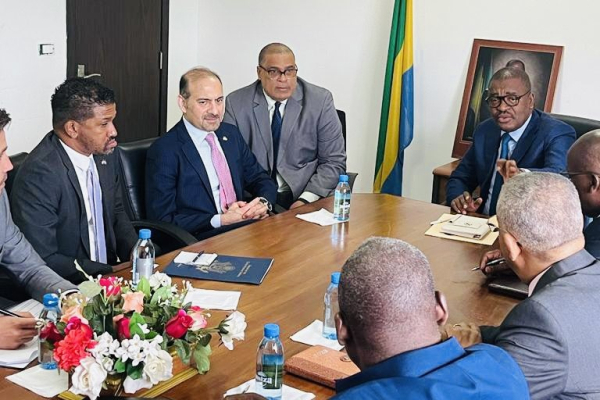
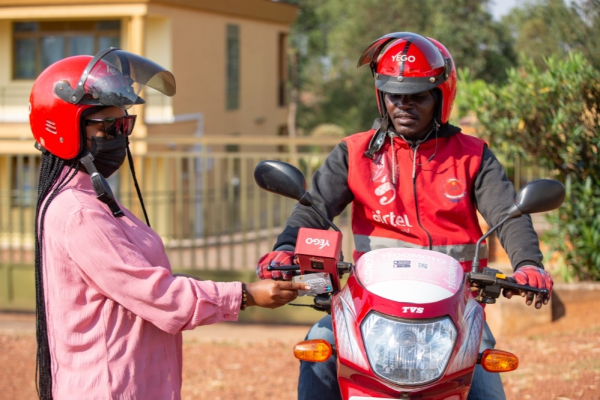
![Factor[e] Ventures launches an Africa-focused startup studio](/media/k2/items/cache/cbbcf4fa489d61b42aa4a35932850e0b_M.jpg)

